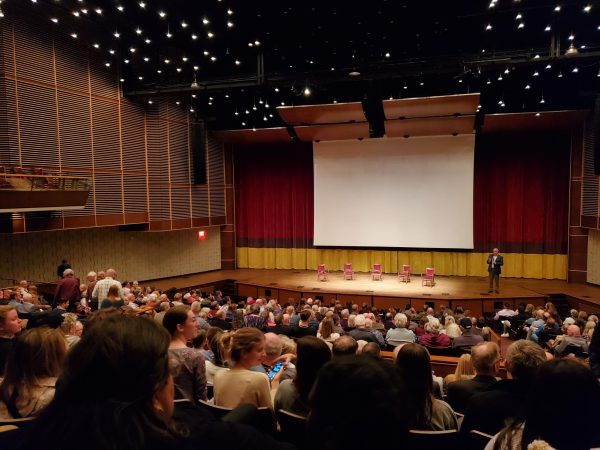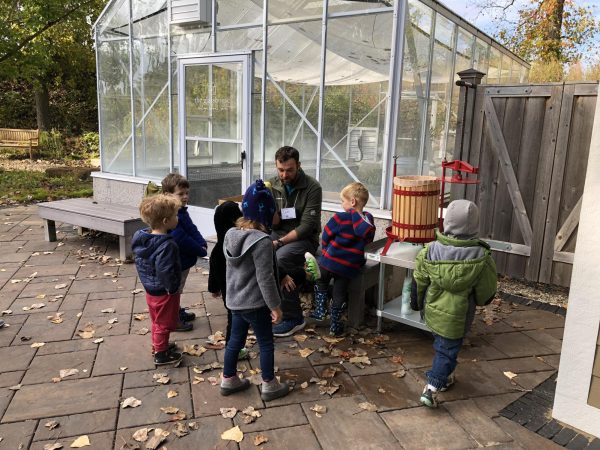Navigating college in a pandemic, international freshmen share their experiences
Starting college overseas may seem daunting to most, even in precedented times, but for international freshmen students, this is their reality mid-pandemic. Misgana Dinberu, Bear de Boo, Stephanie Amalu, Joshua Lee and Adham Rishmawi shared with Chimes the challenges that come with navigating college in the COVID era.
Pre-College
For most high school students, getting acceptance letters from their dream universities is an exciting time. Dinberu, an undecided major from Ethiopia, was excited to receive her acceptance letter in late March last year. She had been looking forward to making new connections and discovering her passions. With COVID-19 being declared a pandemic two weeks prior, she was slightly worried. However, she optimistically assumed the virus would be gone by fall.
Rishmawi, a statistics major from Palestine, shared a slightly different experience. He received his acceptance letter in Dec. 2019. He had been looking forward to the opportunities that college would bring and the chance to blossom. When the first cases of COVID hit Palestine in early February, he had expected to go back to school by the end of the month. The rise in cases brought doubts to the forefront and he wondered if he would be able to actually attend university.
“I was anticipating that potential podium to grow,” said Rishmawi.
Amalu, a nursing student from Nigeria, was entirely unaware that the pandemic would reach this scale when she first received her acceptance in June 2019. She had been looking forward to the strong nursing program and Christian environment. Unlike many of her peers, she decided to defer her acceptance to Spring 2021. She did not believe that online school would be a positive experience for her.
Online Classes
During the fall semester, while most local freshmen were able to attend class in person, most international students were forced to begin their first semesters in college online.
For Rishmawi, this experience was bittersweet. He was grateful for the chance to meet the professors and get started with courses, but doing classes online was difficult. It was often hard to stay attentive and since most professors were still getting familiar with the technology, it was a bit disorganized.
“The best expression I could give is bittersweet. Sweet in the sense that I was capable of taking credits at the most being introduced to some very great professors but bitter in the sense that it was just retaining attention was difficult.”
Similarly, Dinberu also faced difficulties with her first semester. She found that because classes were asynchronous, there was a lot of responsibility to make time for schoolwork and by the end she did not perform as well as she wanted to.
Lee, an undecided student from Korea, found that the workload was less strenuous with online courses. For him, a major drawback was the lack of in-person contact. Thankfully, he was able to connect with Korean upperclassmen doing online classes from Korea as well.
De Boo, a political science major born in Grand Rapids but raised in Tokyo and Amsterdam, was excited for the community of floor life and a great political science department. He had been able to attend the fall semester in person but faced difficulties entering the country due to the COVID cancellation of flights.
COVID Challenges
For the class of 2024, starting college in a pandemic comes with its own set of unique challenges.
According to Rishmawi, the pandemic makes everything harder. Because of masks and the emphasis of COVID regulation protocols, making friends and forming bonds with new people is harder than before. Fortunately, he has benefitted from being able to see more real life applications of topics studied in class as the pandemic unfolds.
After finally being able to come to campus, Dinberu found it difficult being unable to interact with people like normal. It was an unfamiliar experience and just when she began to get used to it, the campus was ushered into a lockdown.
“It’s different. No one has ever experienced this before,” said Dinberu.
Amalu believes that her college experience would be much better without the pandemic. Masks make it difficult to recognize new friends and connect.. She had hoped to be able to explore Grand Rapids outside the Calvin campus, but spends most of her time in her room.
For de Boo, the transition into college during the pandemic was particularly painful. Unlike the others, he had gotten the opportunity to visit the campus pre-COVID and had developed a perfect image of what life in Calvin would be like. Thanks to COVID, everything seems different now.
“I had this, like, surreal image in my mind that was totally not realistic,” said de Boo.
Remaining Optimistic
During this challenging time, students have found support systems within the Calvin community. Many international students have found the orientation team for international students especially helpful.
Dinberu and Amalu both shared positive experiences about orientation. Dinberu was surprised by how friendly and helpful everyone has been. During the orientation process, she could meet and hang out with other international students in person. Amalu was grateful for the chance to learn more about Calvin and make connections with the orientation assistants.
“I didn’t expect Calvin to be a community of people. I didn’t expect people to care as much as they did. When I got here, everyone was very welcoming,” said Dinberu.
For international students leaving home for the first time, the experience can be daunting. Most students often experience culture shock.
With the US being so different from her home country Nigeria, Amalu struggled with adapting to the weather and the food. Although she does not enjoy the cold, she was excited to get to see snow for the first time.
Overall, although there have been several challenges with starting college in a pandemic, many international freshman students remain optimistic and excited for the rest of their college journey.
“We [Calvin community] should work towards following regulations… so that we can be optimistic towards a better future rather than close a blind eye and just say hope for the best,” says Rishmawi.







